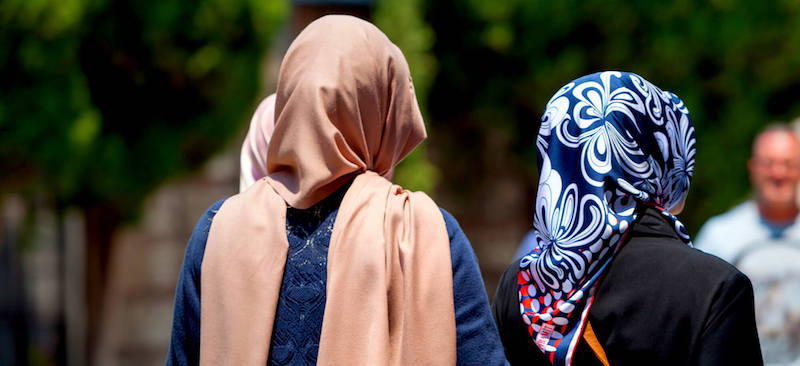Hijab as a Spiritual Practice: Deepening Your Connection with Allah

Introduction: Understanding the Spiritual Meaning of Hijab in Islam
Hijab, a religious and cultural symbol often associated with Muslim women, carries a profound spiritual meaning in Islam. It is not simply a piece of cloth; rather, it represents a deeper connection with Allah and serves as a form of worship. In this article, we will explore the importance of hijab in Islam, its spiritual significance and how it can deepen one’s connection with Allah.
Importance of Hijab in Islam: A Symbol of Servitude to God
The importance of hijab in Islam cannot be overstated. It is an outward expression of an inward commitment to the worship of Allah and submission to His commands. The Quran, the holy book of Islam, emphasizes the significance of modesty and hijab as a means of preserving one’s chastity and integrity. As mentioned in Surah An-Nur (Chapter 24), verse 31, Allah instructs believing women to lower their gaze and guard their modesty, which includes wearing the hijab: “And tell the believing women to lower their gaze and guard their private parts and not expose their adornment except that which [necessarily] appears thereof and to wrap [a portion of] their headcovers over their chests.”
Hijab as a Spiritual Shield: Protection from External Influences
In addition to its role as a symbol of servitude to God, hijab also serves as a spiritual shield, providing protection from external influences that may distract one from their spiritual journey. By wearing the hijab, Muslim women create a physical and spiritual boundary between themselves and the outside world, allowing them to focus on their relationship with Allah. This protective aspect of hijab is beautifully described in an article by the Yaqeen Institute, which highlights how hijab acts as a shield against the objectification and commodification of women in society, enabling them to prioritize their internal growth and spiritual connection with Allah.
Hijab and the Inner Transformation: Cultivating Virtues
The spiritual practice of wearing hijab goes beyond the physical act itself. It entails a profound inner transformation, whereby the individual cultivates virtues such as modesty, humility, and self-discipline. By observing hijab, Muslim women actively engage in a continuous spiritual struggle to purify their hearts and minds. As stated in the article on Hidjabaya, this inner transformation involves aligning one’s intentions with the pleasure of Allah, seeking His forgiveness, and striving for self-improvement.
Hijab as an Act of Worship: Strengthening the Bond with Allah
Hijab, when embraced as a spiritual practice, becomes an act of worship that strengthens the bond between the believer and Allah. By donning the hijab, Muslim women symbolize their devotion to their Creator and express their love for Him. The physical act of covering oneself is a constant reminder of the need for obedience and mindfulness in all aspects of life. It serves as a means of seeking closeness to Allah and striving for spiritual elevation.
Conclusion: Nurturing the Spiritual Connection with Allah through Hijab
The s of utmost significance. Hijab, far from being a mere piece of fabric, holds immense spiritual significance in Islam. It serves as a powerful means for Muslim women to deepen their connection with Allah and embark on a transformative spiritual journey. By embracing hijab as a spiritual practice, individuals not only fulfill a religious obligation but also cultivate virtues, protect themselves from external influences, and strengthen their bond with the Allah. Through the observance of hijab, Muslim women are reminded of their devotion to Allah, and their spiritual connection is nurtured, enabling them to lead a life of purpose and meaning.
